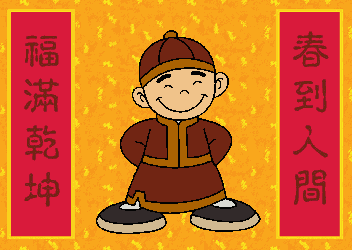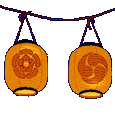


January 31

Horse 馬 午
!!! 恭喜发财 !!!
Gong Xi Fa Cai


Horse Sign
Meaning a burning flame or sun, sign of plants at their end.
Meaning a burning flame or sun, sign of plants at their end.
Those
born under the sign of the Horse are a flexible group of people. They
tend to be stubborn when it comes their ideas, but they are also
incredibly patient when it comes to hearing out what other people have
to say. They favor straight forward, occasionally blunt conversation.
And yet they generally avoid starting up any unnecessary trouble. This
combination then makes those under the Horse sign a bit of a puzzle to
the people around them. Though this certainly does not stop people from
trying to figure them out.
In spite of some of their misgivings, Horses are also incredibly loyal friends and partners. Perhaps it is because first impressions have a lasting effect, or simply that they are inclined to do well by others. Whatever the case for an individual, however, they are consistently there when friends need a person to turn to or a shoulder to lean on. They are also quite capable of resolving conflicts, both their own and other people's. Altogether then, those born under the sign of the Horse are some of the most favored members of society; and though they don't often aspire to greatness they tend to achieve a manner of it through the compliments and adoration of their friends.
In spite of some of their misgivings, Horses are also incredibly loyal friends and partners. Perhaps it is because first impressions have a lasting effect, or simply that they are inclined to do well by others. Whatever the case for an individual, however, they are consistently there when friends need a person to turn to or a shoulder to lean on. They are also quite capable of resolving conflicts, both their own and other people's. Altogether then, those born under the sign of the Horse are some of the most favored members of society; and though they don't often aspire to greatness they tend to achieve a manner of it through the compliments and adoration of their friends.
The color red is used because it is considered a color that wards off evil and symbolizes Good Luck.
It is said that odd number of bills, coins or the total
of the money given must not add up to an odd number (like 3,5,7,9, etc.), but either must be an even number or end with an “8″ in the ones column (like $88.00, $168.00, etc.) as they are considered auspicious or “good” numbers. Any money must not total the numbers, 4, 40,44,444, etc., as the pronunciation of the word “four” in Chinese dialects resembles the word for death, a bad omen.


Red envelopes are also given to newlyweds in China.
You can activate Good Luck on this day by burning red candles anointed with “Fast Luck” oil to activate the goodness of the New Year and the first New Moon.
 History of Chinese New Year
History of Chinese New Year
The Chinese New Year Festival is the most significant holiday for Chinese people around the world, regardless of the origin of their ancestors. It is also known as the Lunar New Year Festival because it is based on the lunar calendar as opposed to the Gregorian calendar. The holiday is a very jubilant occasion mainly because it is the time when people take a break from work to get together with family and friends.
The origin of the Chinese New Year Festival can be traced back thousands of years through a continually evolving series of colourful legends and traditions. One of the most famous legends is that of Nien, an extremely cruel and ferocious beast, which the Chinese believe, eats people on New Year’s Eve. To keep Nien away, red-paper couplets are pasted on doors, torches are lit, and firecrackers are set off throughout the night, because Nien is said to fear the colour of red, the light of fire, and loud noises. Early the next morning, as feelings of triumph and renewal fill the air at successfully keeping Nien away for another year, the most popular greeting heard is kung-hsi, or “congratulations.”


Even though Chinese New Year celebrations generally only last for
several days, starting on New Year’s Eve, the festival itself is actually about three weeks long. It begins on the twenty-fourth day of the twelfth lunar month, the day, it is believed, when various gods ascend to heaven to pay their respects and report on household affairs to the Jade Emperor, the supreme Taoist deity. According to tradition, households busily honor these gods by burning ritualistic paper money to provide for their traveling expenses. Another ritual is to smear malt sugar on the lips of the Kitchen God, one of the traveling deities, to ensure that he either submits a favorable report to the Jade Emperor or keeps silent.
Next, “spring couplets” are hung up around the house. Spring couplets
are paper scrolls and squares inscribed with blessings and auspicious words, such as “good fortune,” “wealth,” “longevity,” and “springtime.”
The paper squares are usually pasted upside down, because the Mandarin Chinese word for “upside down,” Tao, is a homonym of the word “arrival.”
Thus, the paper squares represent the “arrival” of spring and the “coming” of prosperous times.
On lunar New Year’s Eve, family members who are no longer living at home make a special effort to return home for reunion and share in a sumptuous meal. At that time, family members hand out “lucky money” in red envelopes to elders and children and stay up all night to welcome the New Year. Chinese people have long believed that staying awake all night on New Year’s Eve would help their parents to live a longer life. Thus, lights are kept on the entire night–not just to drive away Nien, as in ancient times, but also as an excuse to make the most of the family get-together. Some families even hold religious ceremonies after midnight to welcome the God of the New Year into their homes, a ritual that is often concluded with a huge barrage of firecrackers.

Gong Xi Fa Cai


























